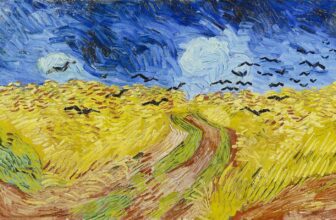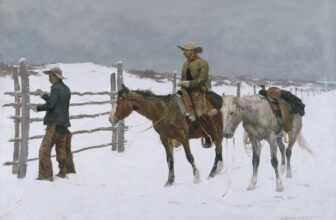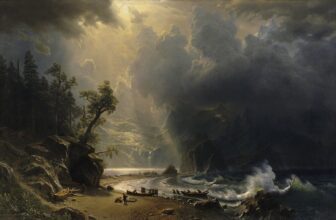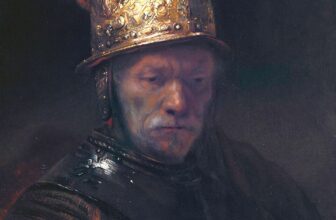What Was Napoléon Bonaparte Famous For
In the annals of history, few names command as much attention and fascination as Napoléon Bonaparte. A man of contrasts, military genius and political reformer, ruthless autocrat and revolutionary idealist, Napoléon’s story is one of meteoric rise, dramatic fall, and an enduring legacy that continues to shape the modern world. From his victories on the battlefield to his sweeping reforms across Europe, his life is a testament to the heights one man can achieve and the consequences that can follow unchecked ambition.
The Corsican Flame: From Humble Beginnings to French Revolutionary
Born on August 15, 1769, in Ajaccio, Corsica, Napoléon was not French by birth but rather of Italian descent. Corsica had only recently been acquired by France from the Republic of Genoa, and young Napoléon grew up with a strong sense of regional identity and resentment toward foreign rule. Despite this, his father, Carlo Buonaparte, a minor noble, managed to secure a scholarship for Napoléon to attend military school in mainland France.
Napoléon was mocked for his Corsican accent and small stature, he stood around 5 feet 6.5 inches (1.69 meters), which was average for the time but led to enduring myths of him being unusually short. These rumors likely stemmed from confusion between French and British measurement systems, as well as caricatures by British propaganda. Nevertheless, Napoléon’s intellect and drive were anything but small.
As the French Revolution tore through the old order, Napoléon aligned himself with the Jacobins, capitalizing on the chaos. His military brilliance was evident during the Siege of Toulon in 1793, where he helped expel British forces and was promoted to brigadier general at just 24.
Napoléon is best known for his role as a military commander and later as the Emperor of France. He was a strategic mastermind whose campaigns are still studied in military academies around the world. His fame was solidified with his Italian campaign in 1796-97, where he defeated Austrian forces with a smaller, less-equipped army. His bold tactics, speed of movement, and ability to inspire his troops made him a legend.
By 1799, amid political instability in France, Napoléon orchestrated a coup d’état and established the Consulate, eventually crowning himself Emperor in 1804. This act alone symbolized his audacity: seizing power not by divine right but by sheer force of will.
His Napoleonic Code, introduced in 1804, is another lasting contribution. It reformed the legal system in France and heavily influenced legal codes around the world. It promoted meritocracy, property rights, and secular education, reflecting Enlightenment ideals.
Why Is Napoleon So Great?
Napoléon’s greatness lies not only in his military victories but in his transformational impact on Europe and beyond. He redefined warfare, popularized nationalism, and exported revolutionary ideals even as he consolidated power. His administrative reforms modernized France and influenced many modern institutions, including central banks, secular education, and codified laws.
He abolished feudalism across much of Europe, redistributed land, and even emancipated Jews in some regions. For many, especially those outside of the aristocratic elite, Napoléon represented a break from centuries of oppression.
Moreover, he inspired the imagination of generations. From Beethoven (at least initially) to Victor Hugo and Tolstoy, Napoléon was a muse, a complex symbol of both brilliance and hubris.
The Apex of Power: Emperor of Europe
At the height of his power, Napoléon controlled a vast swath of Europe. From Portugal to the borders of Russia, from the North Sea to the Mediterranean, his influence stretched far and wide. His reorganization of German territories laid the groundwork for German unification decades later.
His most stunning military triumph came at the Battle of Austerlitz in 1805, often called his greatest victory. Facing a larger Austro-Russian force, Napoléon executed a masterful deception and defeated both armies in one of history’s most celebrated tactical masterpieces.
But success bred overreach.
How and Why Did Napoléon Fall?
Napoléon’s downfall was the result of both external forces and his own overconfidence.
Continental System and Economic Warfare
In an attempt to weaken Britain economically, Napoléon instituted the Continental System, a blockade that banned trade between continental Europe and the UK. This backfired. It hurt European economies more than Britain’s, provoked smuggling, and sowed dissent among allies like Russia.The Peninsular War (1808-1814)
When he invaded Spain to enforce the Continental System, he faced an unrelenting guerrilla war backed by Britain. The Peninsular campaign drained French resources and morale, earning Spain the nickname “Napoléon’s Spanish ulcer.”The Invasion of Russia (1812)
Perhaps the most critical mistake, Napoléon invaded Russia with over 600,000 troops. The Russians avoided major battles, employing a scorched earth strategy. By the time Napoléon reached Moscow, it was deserted and burning. With winter setting in and no supplies, he was forced to retreat. Fewer than 100,000 men returned, a catastrophic loss.The Sixth Coalition and Defeat
His enemies, sensing weakness, formed a powerful coalition, Britain, Russia, Prussia, Austria, and others. After a series of defeats culminating in the Battle of Leipzig in 1813, he was forced to abdicate in 1814 and was exiled to Elba.
The Hundred Days and Waterloo
But Napoléon’s story wasn’t over. In 1815, he escaped Elba and returned to France in a dramatic fashion. As he marched north, royalist troops sent to capture him instead joined his cause. The people rallied, and the king fled. Thus began the Hundred Days.
However, the coalition regrouped. On June 18, 1815, at the Battle of Waterloo, Napoléon met his final defeat at the hands of the Duke of Wellington and Prussian forces under Blücher. He was exiled again, this time to Saint Helena, a remote island in the South Atlantic, where escape was impossible.
What Was Napoleon’s Cause of Death?
Napoléon died on May 5, 1821, at the age of 51. Officially, the cause of death was stomach cancer, which also afflicted his father. However, rumors have persisted about possible arsenic poisoning, as traces were found in his hair during later analysis. Some historians suggest the arsenic may have come from wallpaper in his damp Saint Helena residence, which contained arsenic-based dyes, a common material at the time.
Whether through natural causes or other means, Napoléon’s death marked the end of an era.
Why Is Napoleon a Hero?
To many, Napoléon is a hero because he embodied the ideals of meritocracy, nationalism, and reform. He rose not by noble birth but by talent and determination. He offered careers to the common man based on merit, not lineage, and opened up educational opportunities that had been reserved for the elite.
His enemies often portrayed him as a tyrant, but within France and among the lower classes of occupied nations, he was frequently seen as a liberator who broke the chains of feudalism and brought modernity. He respected and promoted the revolutionary ideals of equality before the law and religious tolerance.
His soldiers adored him. They called him “The Little Corporal,” a term of endearment that reflected how he fought alongside them and shared their burdens.
Even after his fall, his legend lived on. His nephew would become Napoleon III, ruling France in the mid-19th century. Monuments to his legacy, like the Arc de Triomphe in Paris, still stand tall.
Legacy: The Man, The Myth, The Monument
Napoléon’s impact on the world is difficult to overstate.
The Napoleonic Code remains the foundation of legal systems in over 70 countries.
His campaigns indirectly inspired the unification of Germany and Italy.
He showed the power of nationalism, both as a unifying and divisive force.
His career changed military tactics and logistics forever.
And perhaps most profoundly, Napoléon shattered the notion that only birth and tradition could determine leadership. He proved that one man, armed with vision and ambition, could remake the world in his image.
Napoléon Bonaparte was more than a general or emperor, he was a force of nature. Revered by some, reviled by others, he was the embodiment of human potential and the peril of overreaching ambition. His life reads like an epic novel: a boy from a small island who bent empires to his will, only to be undone by the very scale of his dreams.
He was great, not just because of his victories or reforms, but because he dared to imagine, and pursue, a world transformed. Whether viewed as a hero or a cautionary tale, Napoléon remains one of the most compelling figures in all of history.




